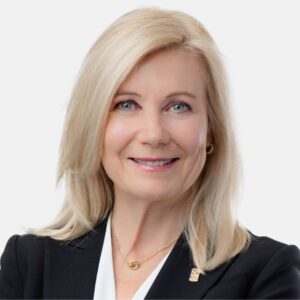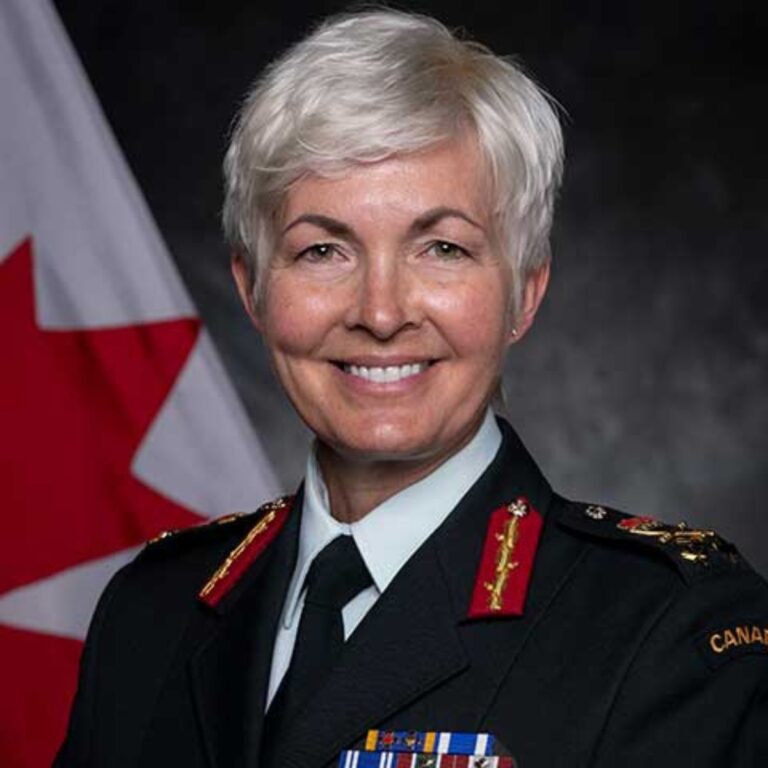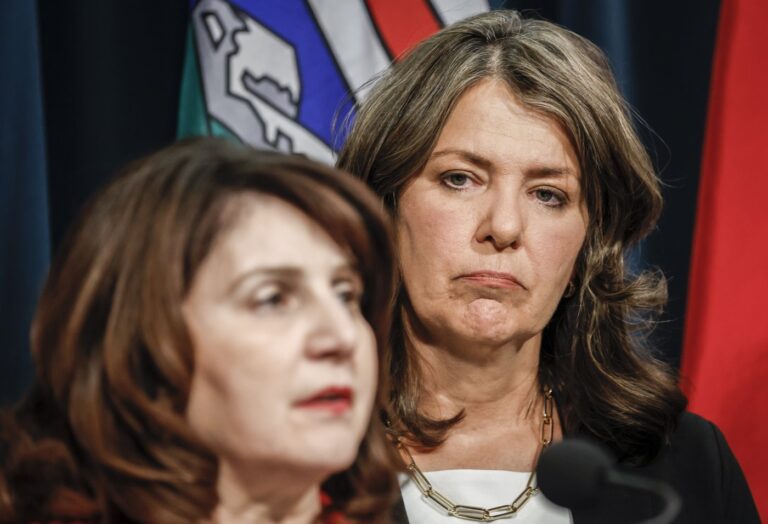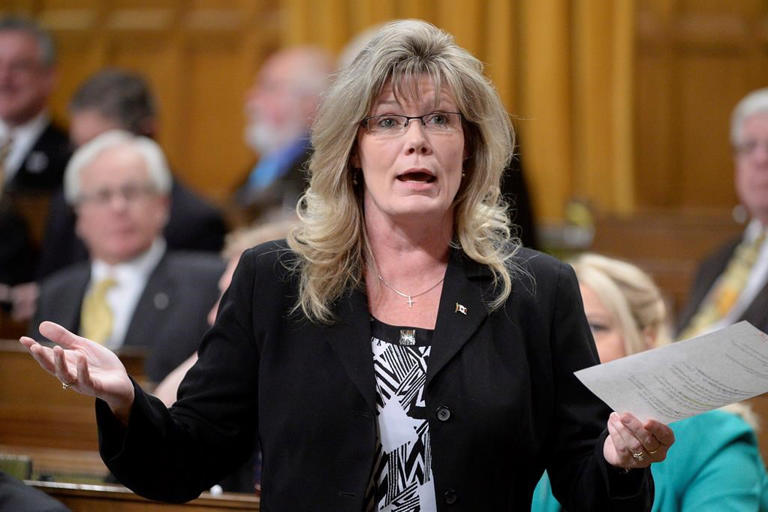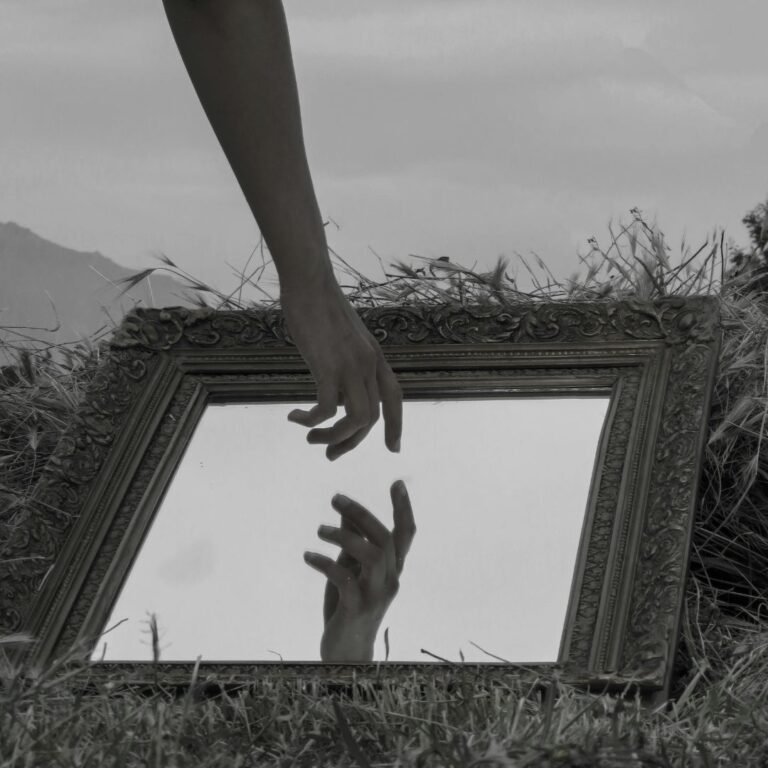Marilyn Denis — A legend of Canadian media
Join Jennifer Stewart and Catherine Clark on this compelling episode of The Honest Talk as they sit down with the iconic Marilyn Denis. In an intimate and honest discussion, Marilyn opens up about the challenges women face in the media industry, confronting ageism with grace, and her personal journey through loss.
The conversation takes an emotional turn as Marilyn shares her experience of losing a sister to cancer and how it has shaped her perspective on life. The episode also delves into Marilyn’s heartwarming love story and explores her exciting plans for the future. Tune in for an inspiring and genuine conversation with one of Canada’s beloved media personalities.
Note: This transcript has been edited for length and clarity.
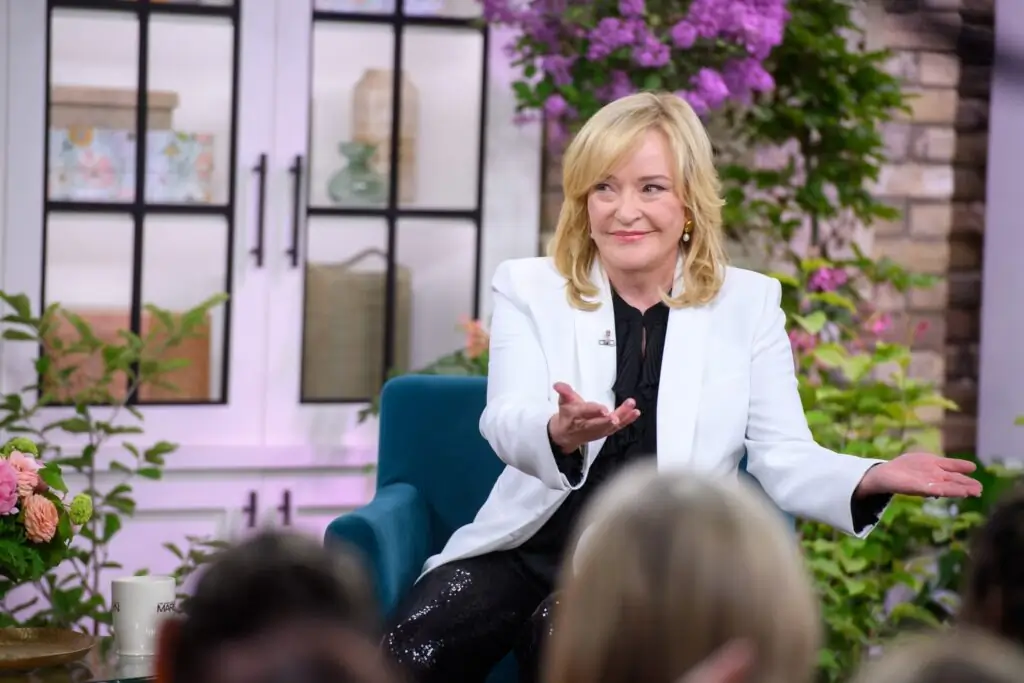
Being the only woman in the room
Jennifer Stewart: Marilyn, you have had such an extraordinary career, not just for your length in media, which is pretty spectacular, but also for what you’ve accomplished in terms of the variety of shows, your guests, and just your influence. But you started out in Moscow, Idaho, as the first female DJ at the town’s radio station. What do you remember about those early days of being a cub reporter?
Marilyn Denis: I was an on-air DJ, but I had to be monitored by the engineer. Because I was a Canadian citizen, I couldn’t run the technical part of it — that was totally held by the FCC — so I eventually had to get my American citizenship. I always say this: I was raised by males in the world of media, because that’s all that was there at that time. And I thought, why are these guys having all the fun? I’m going to have fun too. So I worked part-time at the station while going to school and eventually got dual citizenship, and then I was able to get my own shift, which was 8:00 at night to 1:00 in the morning, which is not very good for dating.
Catherine Clark: So you just talked about the fact that you’ve worked for a lot of men, but you have spent a lot of your career making space for other women. When you started your career surrounded by men, who was making space for you?
Marilyn Denis: The men were, because there was no on-air space for women. When I started in 1976, in that small town, we were all trying to carve out what we wanted to do. Not to say that they were easy people to work with — they wanted me to be better, so they were very much error-checking me and making sure that I had what it takes. They made space for me, partly because I think that was what was asked for in the day because more and more women were getting into broadcasting, but also because they thought that I had a little something and it’d be great to have me on the air. There were very few women in my broadcasting classes, and now I’m happy to say those are filled with women. So I think I have to give some kudos to some of the fellows I’m still friends with, who welcomed women in — they were saying, yes, we need more women here, which is sometimes unheard of.
Jennifer Stewart: But Marilyn, you’ve paid it forward: when Anne-Marie Mediwake interviewed you for your last show, she talked about how you genuinely stop in the halls, no matter how busy you are, to take the time, particularly with the female journalists. And Kelsey McEwan reiterated that exact experience: that you were never too busy, despite having so much on your plate, to engage and you are such a mentor. Is that a really conscious deliberate attitude towards your younger female colleagues? Or your colleagues in general? Or is that just who you are?
Marilyn Denis: I had a great nurturing mother, and I was raised by parents who had four girls, but no one at that time was asking you how you were doing. As I got into bigger places, I wanted to carve out some relationships with women, and actually talk to them about what it’s like getting through the day. And then I thought to myself, nobody really stops and asks people in general how they’re doing, and means it. And so I seek out women especially, but that’s not to say that I don’t with men. I don’t think we check in with enough people. We certainly did it during the pandemic, but I think I’ve been doing it all my life and I think it’s because my mother did that.
A supportive family
Catherine Clark: Going back to you being one of the only women in your industry at that time, what did your mom and dad instill in you in terms of a sense of your own value and your own worth, that let you make your way through this environment where you were one of the only female faces you saw?
Marilyn Denis: I think they celebrated how different each girl was. Not everything I did was great. When I got into radio, I used to send them little cassette tapes, and they kept them. I don’t know where they are right now. But, you know, they weren’t good. And they would say things like, “Honey, that’s really good. You know, that’s not how you say that word, but that’s getting better.” And then as I got onto television in Calgary, where my parents lived, I had to make sure that if I’m using their last name, that they’re proud of that last name.
Catherine Clark: We have this thing in our family where you can be what you want inside the walls of the house, but outside you don’t shame the name.
Marilyn Denis: That is exactly right. I think with all of those things, their voices are in my head. When we had Sunday dinners, we’d have conversations — some of them weren’t very deep, but it was about how to carry on a conversation, how to listen to others, how to celebrate, and even though you don’t have the same interest as your sister, you should still listen to what she’s saying. That was really good parenting.
And I wasn’t a great student — I don’t know if I had a learning disability, I don’t want to look into that, but I didn’t know why I couldn’t get B-pluses. I think when you’re like that, you try even harder to find something that you can do. And my parents applauded that, and let me figure it out and supported me as much as they could. They had to wrap their heads around the lack of job security — that was back when men would stay in a corporation for a long time. My mother used to have to ask my father for money, and sometimes he would start interrogating her a little bit, and I remember when I was five, my mother looked down at me and squeezed my hand and said, “When you grow up, have your own money.”
On advocacy and grief
Jennifer Stewart: Can you speak to us about the impact of losing your sister?
Marilyn Denis: There wasn’t much known about breast cancer 36 years ago. Miriam was a real trooper — she was pregnant and noticed a lump, and after she had her son, she went back to the doctor and the doctor said, “Oh, it’s just a cyst.” She advocated for herself and ended up having a mastectomy, but over seven years that cancer had spread.
My sister and I were very close. She was a real trooper. She was very generous with information on her journey, and she was also clear about what she wanted after she was gone. She left a very big hole. She was also pretty amazing back in the day — we didn’t have the Look Good Feel Better program, but she would talk to other cancer patients in the Philadelphia area about where to get a good wig, where to get really good macrobiotic food because that’s what she was into at the time. So I find her brave and pioneering, and certainly she comes to my mind quite often. And when I get scared about interviewing somebody that has suffered in some way or is living a certain way or living with cancer, I feel empowered, because at least I have a little bit of insight on that one.
Catherine Clark: What have you learned during your own journey about advocacy, being someone who stands up for yourself, but also being someone who stands up for other people?
Marilyn Denis: People have asked me, how do I speak up? I give them the tools to do that: Don’t be afraid, because if you don’t say something, if you don’t stand up for yourself, if you don’t want for more, and you want it to be better, no one’s sitting in their office saying, “How can we make her life better?” You have to be the one to tell them, but you also have to be careful with the tone of the message.
Don’t be afraid, because if you don’t stand up for yourself, if you don’t want for more, and you want it to be better, no one’s sitting in their office saying, “How can we make her life better?”
Marilyn Denis
Jennifer Stewart: Marilyn, you strike me as extremely entrepreneurial. You’ve curated this iconic career and your brand very carefully. Is there a fourth or fifth stage of your life that is very entrepreneurial driven, that’s going to come? Are you going to lean into being retired?
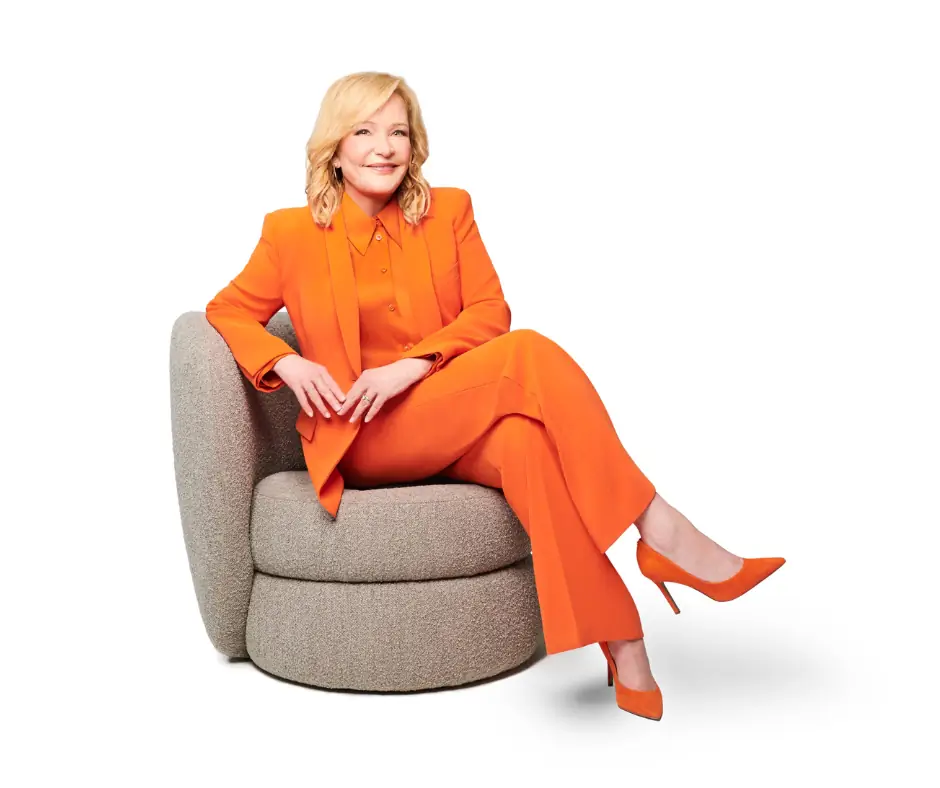
Finding purpose and overcoming barriers
Marilyn Denis: I’ll take that as a compliment. My son is extremely entrepreneurial. I love his brand. He’s very funny, and he’s a good dad, too.
I know what I don’t want to do, but I don’t know what I do want to do. I think about it a lot. There’s no deadline to say, okay, you’ve got to make up your mind, right? And even if I do step away from radio, whenever that happens, I have to have purpose. I love broadcasting. So maybe it’s voiceover work, or maybe I’ll end up working with my son. I don’t know.
Catherine Clark: Can we talk about the age factor too, because I do believe that there’s still a sense that women beyond a certain age, probably in all industries but definitely in the media, face an uphill battle. But we also feel that you’ve broken that barrier. You have created a situation where women who are of any age look at you and just think, “Wow, she’s great!” Do you think that we’ve actually made progress on that? Or do you think that there are still barriers in place for women in particular?
Marilyn Denis: If I was this age in the ‘80s I wouldn’t be here. I’m here because I’m lucky. I’m here because I work hard. I’m here because my attendance is pretty darn good. I have to be really sick with an IV to not come into work and of course COVID protocol too, but prior to COVID, I would come in no matter what, because I don’t want to let the team down. I’m here because I love what I do. Being 65 years old on the radio doesn’t seem to be much of an issue.
If I was this age in the ‘80s I wouldn’t be here. I’m here because I’m lucky. I’m here because I work hard. I’m here because my attendance is pretty darn good. I’m here because I love what I do.
Marilyn Denis
Staying healthy
Jennifer Stewart: What is your routine for staying healthy?
Marilyn Denis: My routine is to work out with my trainers twice a week. I’m on the Peloton three times a week — I don’t do the hard classes, I do the scenic roads. I am very careful with what I eat because I do have some food allergies. I go to bed every weekday at 7:00; I get up at 3:15 in the morning. I don’t take naps in the afternoon. I’m not afraid to go to the doctor. I can’t say that I go running or go for a walk — I don’t like working out, but once I do it, I feel really good.


